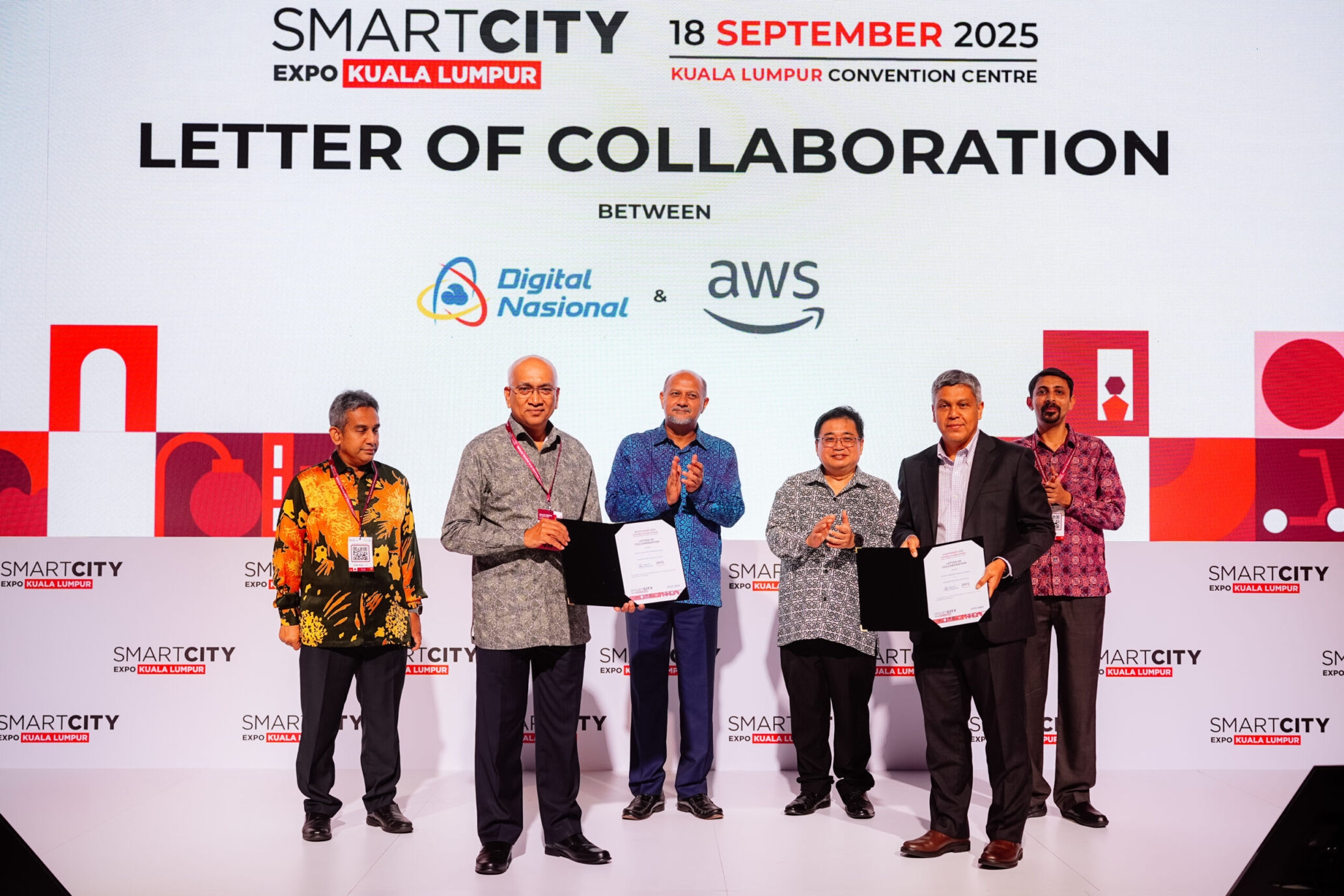[SCEKL25] Malaysia shapes human-centered AI cities through four landmark collaborations

Malaysia on Thursday marked a significant milestone in its journey toward inclusive, people-centric digital transformation.
At the Smart City Expo Kuala Lumpur 2025 (SCEKL25), Digital Minister Gobind Singh Deo witnessed the exchange of three landmark Memorandums of Understanding (MoUs) and one Letter of Collaboration.
Held at the Future Citizen Stage, the event brought together city leaders, global innovators, and local institutions to demonstrate how AI and 5G technologies are shaping the region’s urban future.
As ASEAN’s first global platform dedicated to AI Cities, SCEKL25 served as the ideal stage for these strategic announcements. The document exchanges, between Digital Nasional Berhad (DNB) and Malaysia Digital Economy Corporation (MDEC) and players in the smart cities and AI sector, underscored Malaysia’s leadership in convening regional stakeholders—industry players, policymakers, and communities—to drive smart, sustainable, and inclusive urban innovation.
Azman Ismail, Chief Executive Officer of DNB, said, “These collaborations reflect our determination to build a future-ready Malaysia. By combining the strengths of global technology leaders and local institutions, we are laying the foundation for AI-powered cities, inclusive digital ecosystems, and a skilled public sector. Together, we are not just imagining the future—we are building it.”
Anuar Fariz Fadzil, Chief Executive Officer of MDEC, added, “At MDEC, we are committed to keeping progress human-centred. If we hold onto this principle, we can harness AI as a force for good—ensuring its benefits reach everyone: government, large enterprises, SMEs, youth, and communities across the nation.
“In this light, the MoUs signed today reflect our commitment to building AI Cities and digital ecosystems that serve real human needs. By working with global leaders and national partners, we are embedding AI into areas such as urban sustainability, climate resilience,
digital rakyat services, and future-ready skills. These collaborations show that Malaysia is not only adopting technology—it is shaping it responsibly to improve lives and strengthen our position as a digital hub for ASEAN.”
The first MoU was signed between DNB and Ericsson, launching the 21st Century Technologies Education Program. This four-hour course aims to upskill civil servants in local councils and public agencies with practical knowledge in artificial intelligence, 5G,
and the Internet of Things.
David Hägerbro, Head of Ericsson Malaysia, Sri Lanka, and Bangladesh, stated, “Malaysia is uniquely positioned to become a leading AI nation, supported by its world- class 5G network, growing data centre investments, and advanced cloud infrastructure. But technology alone isn’t enough—the government workforce is a key driver of this ambition. That’s why Ericsson is proud to collaborate with DNB to equip public sector employees with the skills needed to turn Malaysia’s digital vision into reality.”
The second agreement formalised a Letter of Collaboration between DNB and Amazon Web Services (AWS) to co-develop a national AI Cities platform. This initiative will integrate cloud infrastructure, machine learning, and advanced data analytics to enable real-time urban operations and predictive decision-making. By establishing this digital backbone, Malaysia is advancing toward smarter, more responsive governance—highlighting the transformative role of cloud and AI technologies in delivering national impact.
The third MoU brought together DNB, MDEC and the Malaysian Smart City Alliance Association (MSCA) to jointly develop frameworks and standards for AI Cities in Malaysia.
These frameworks will guide the integration of technology into daily life, enhancing mobility systems, digital citizen services, and sustainable urban solutions.
Raslan Ahmad, Chairman of MSCA, said, “This partnership is a commitment to transforming how Malaysians live, work, and interact in their cities. Together with DNB and MDEC, MSCA is focused on enabling AI-driven, 5G-powered solutions that make communities safer, services smarter, and everyday life more seamless.”
The final MoU was signed between MDEC and Dell Technologies’ AI Innovation Hub, establishing a testbed for climate AI prediction in Penang’s UNESCO World Heritage Zone. This project aims to protect cultural heritage while enhancing environmental resilience through AI.
Sumash Singh, Managing Director, Malaysia and Indonesia, Dell Technologies, emphasized, “Malaysia’s cities face real challenges that demand responsible technology. Malaysia is not standing on the sidelines of digital transformation—it is leading the way
as ASEAN’s convener of inclusive, future-ready smart cities.”
#SmartCity #AITransformation #5GInnovation #DigitalEcosystem #UrbanSustainability
- SmartCity
- AITransformation
- 5GInnovation
- DigitalEcosystem
- UrbanSustainability
- If
- Ifvex
- Ifvex_AI
- Ifvex_Social_Network
- Ifvex_AI_Community
- Ifvex_Technology
- Artificial_Intelligence
- AI_Social_Network
- AI_Community
- AI_Networking
- AI_Collaboration
- AI_Innovation
- AI_Technology
- AI_Trends
- AI_Development
- AI_Tools
- AI_Platforms
- AI_Solutions
- AI_Integration
- Art
- Causes
- Crafts
- Dance
- Drinks
- Film
- Fitness
- Food
- Games
- Gardening
- Health
- Home
- Literature
- Music
- Networking
- Other
- Party
- Religion
- Shopping
- Sports
- Theater
- Wellness


